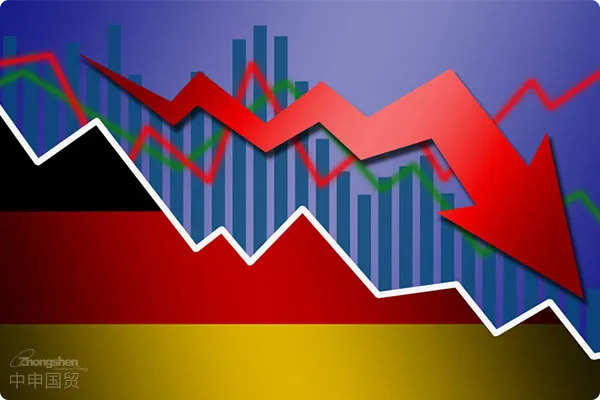- Shanghai Zhongshen International Trade Co., Ltd. - Two decades of trade agency expertise.
- Service Hotline: 139 1787 2118
In 2023, Germanys GDP shrank, showing the worst performance since 2021, with a year - on - year decline of 0.3% and a 0.1% shrinkage after adjustment. This is the second economic contraction since the 2020 pandemic and the second in fourteen years. Germanys industrial output and household consumption declined, while the service and construction industries grew.

Multiple factors led to this economic decline. Persistent multiple crises, high inflation, high interest rates, and insufficient external demand are the main factors. Although prices have declined to some extent, the overall economic development has been restrained. The average inflation rate in 2023 was 5.9%, second only to 6.9% in 2022.
Germanys economic structure is also one of the reasons for the recession. The proportion of industrial output in GDP is high. Due to high energy prices, the industrial sector has encountered difficulties. The output of the industrial sector decreased by 2% in 2023. In addition, Germanys economy is overly dependent on exports. Central banks around the world raised interest rates to combat inflation, leading global companies to reduce their purchases of German - made machinery, thus causing a significant decline in Germanys exports.
The recession of the German economy has had a negative impact on the entire European economy. Many economists predict that the economic growth rate of Germany in 2024 will be significantly lower than 1%, and may even decline further. As the engine of the European economy, Germanys negative growth may slow down the European economic recovery, affect foreign investment,import and exporttrade volume, and increase the employment pressure and slow down the pace of industrial transformation in many European countries.
Related Recommendations
? 2025. All Rights Reserved. Shanghai ICP No. 2023007705-2  PSB Record: Shanghai No.31011502009912
PSB Record: Shanghai No.31011502009912










